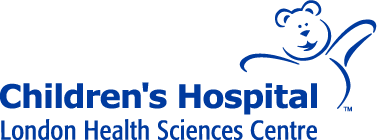The Paediatric IBD (pIBD) program provides a team approach to comprehensive, individualized diagnosis and treatment for patients with Crohn’s disease and ulcerative colitis. This allows your experience with Inflammatory Bowel Disease to be managed by a team each visit you make to Children’s Hospital. This new clinic allows us to commit to young people under the age of 18 with inflammatory bowel disease. They face unique challenges, such as growth, hormonal and bone health issues. Because of this, paediatric patients often need more aggressive treatments than adults. Our paediatric team is the best resource to turn to when faced with these unique issues.
IBD
Inflammatory Bowel Disease (IBD) is a lifelong, chronic inflammatory disorder of the intestines. IBD is caused by abnormal immune responses to the intestine, resulting in disruptions of your body’s ability to digest food, absorb nutrition and eliminate waste in a healthy manner. Although there is no cure to IBD, treatments involve regular medications, even during periods of remission. There are also additional medications for flare-ups of IBD.
IBD describes a group of conditions. The two main forms of IBD are Crohn’s disease and Ulcerative Colitis.
Treatments
Use: induce and maintain remission
- Infliximab (Remicade): an IV infusion which are given at regular intervals. The infusions take a total of approximately 4 hours to complete
- Adalimumab (Humira): a subcutaneous injection that occurs every 7 to 14 days
Tips
- Ice site prior to injection
- Some report less pain with syringes than the auto-injector pen
- Rotate site of injection
- Side effects include: redness, itching, bruising, pain, or swelling at the injection site
Side effects for Biologic Therapies include: immune suppression which could cause infections, hypersensitivity (anaphylaxis), reactive tuberculosis (TB) – (TB skin test and chest x-ray prior to assess for TB), lymphoma (rare), expensive
Use: To induce remission and treat flare-ups
Treatment: Medications include Prednisone, Methylprednisolone, Hydrocortisone and Budesonide (non-systemic). The medication must be weaned to prevent adrenal crisis.
Side effects include: weight gain, acne, “moon face”, immune suppression and therefore risk for opportunistic infections, avascular necrosis of the hips/joints, osteoporosis, hypertension, mood swings, insomnia, cataracts, stretch marks, hyperglycemia
Crohn’s Disease
Crohn’s Disease involves the entire gastrointestinal tract –from mouth to anus. However, it does not mean that the entire tract is affected; there can be areas in the intestine that are healthy in between the diseased areas. Unlike Ulcerative Colitis, Crohn’s disease can affect all layers of the intestinal wall (not just the lining).
Complications of Crohn’s disease
Complications of Crohn’s disease can be found within the gastrointestinal tract but there can be extraintestinal complications.
Treatments
Immunomodulators – For Crohn’s Disease
Use: to maintain remission
- Methotrexate : Taken once weekly
- Side effects include: Nausea/vomiting, headache, leukopenia, liver inflammation, contraindicated in pregnancy
- Side effects include: Nausea/vomiting, headache, leukopenia, liver inflammation, contraindicated in pregnancy
- Azathioprine: taken daily
- Side effects include: headache, nausea/vomiting, diarrhea, malaise
- Less common side effects are: Pancreatitis, Bone marrow suppression, lymphoma
- Regular labs are required for monitoring
- Side effects include: headache, nausea/vomiting, diarrhea, malaise
Exclusive Enteral Nutrition (EEN): Modulen – For Crohn’s Disease
Exclusive Enteral Nutrition (EEN) is a liquid formula that will be the sole source of nutrition. It is used to induce remission and its efficacy is 60%. Because EEN may not taste pleasant, a nasogastric (NG) tube is used to deliver the formula. The treatment lasts 8-12 weeks and then food is slowly reintroduced.
Advantages
- It has no direct side effects
Disadvantages
- Less effective than prednisone to induce remission
- There may be stress due to the tube placement
- The nasogastric tube may cause a psychological impact
- Maintenance cost
Ulcerative Colitis
Ulcerative Colitis is a chronic disease that affects the lining of the large intestines (colon) by developing tiny open sores or ulcers which produce pus and mucous. The inflammation and ulceration can cause abdominal pain and stool frequency.
Treatments
Immunomodulators – For Ulcerative Colitis
Use: to maintain remission
- Azathioprine: taken daily
- Side effects include: headache, nausea/vomiting, diarrhea, malaise
- Less common side effects are: Pancreatitis, Bone marrow suppression, lymphoma
- Regular labs are required for monitoring
- Side effects include: headache, nausea/vomiting, diarrhea, malaise



